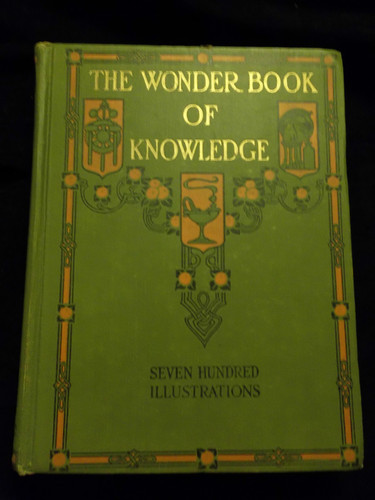
The Wonder Book of Knowledge
by Henry Chase Hill (ed.)
Publisher: John C. Winston Company 1921
ISBN/ASIN: B000LTQMKW
Number of pages: 624
Description:
This book is presented to those, both young and old, who wish to have a non-technical account of the history, evolution and production of some of the every-day wonders of the modern industrial age; coupled with occasional glimpses of the wonderful object-lessons afforded by nature in her constructive activities in the animal, vegetable and mineral kingdoms; and simple, understandable answers to the myriad puzzling questions arising daily in the minds of those for whom the fascination of the 'Why' and 'How' is always engrossing.
Download or read it online for free here:
Download link
(multiple formats)
Similar books
 The Revolutions of Wisdom
The Revolutions of Wisdomby G. E. R. Lloyd - University of California Press
Lloyd's masterly book offers a fascinating and persuasive picture of ancient Greek scientists at work, a complex analysis involving a wide range of issues. Lloyd handles the labyrinthine and often problematic evidence with delicacy and skill.
(16362 views)
 An Ordinary World: The Role of Science in Your Search for Personal Meaning
An Ordinary World: The Role of Science in Your Search for Personal Meaningby Todd Duncan - Science Integration Institute
This book invites readers to explore science as a useful guide in the search for meaning. Science is a powerful filter for figuring out how the world works and therefore for figuring out a context within which to make choices in everyday life.
(18418 views)
 Science and Method
Science and Methodby Henri Poincare - T. Nelson
An examination of the process scientists go through when determining which of the facts before them will be most useful in advancing scientific knowledge. In this text Poincare investigates mathematics, logic, physics, mechanics, and astronomy.
(12595 views)
 The Fourth Paradigm: Data-Intensive Scientific Discovery
The Fourth Paradigm: Data-Intensive Scientific Discoveryby Tony Hey, Stewart Tansley, Kristin Tolle - Microsoft Research
The Fourth Paradigm, the collection of essays expands on the vision of pioneering computer scientist Jim Gray for a new, fourth paradigm of discovery based on data-intensive science and offers insights into how it can be fully realized.
(18125 views)